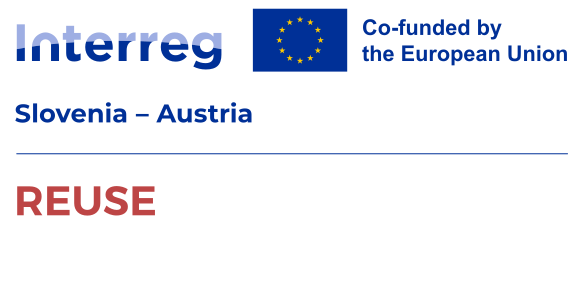Country: Slovenija
Focus area:Digital
Thematic area:
Digitalization and Connectivity, Automation and Robotics, Data Analytics and Artificial Intelligence, Additive Manufacturing and 3D Printing
TRL phase: TRL 9 - actual system launched on the market (System launched)
Addressed business processes: MANUFACTURING OPERATIONS process
Solution overview
What is SolidLab
Solid Lab offers a connected platform that revolutionizes concrete production
facilities by digitizing and automating quality control processes.
It provides automated sampling, reduced data entry errors, complete traceability, compliance with standards, enhanced data security, and business analytics insights. It allows concrete plants to operate more efficiently, ensuring reliability and compliance, while fostering a more digital and sustainable construction ecosystem.
Why:
It addresses critical challenges in concrete production, such as the need for accurate quality control, compliance with stringent industry standards, and efficient operational processes. By automating and digitizing these aspects, Solid Lab reduces errors, improves operational efficiency, and ensures product consistency, which are essential for meeting both customer expectations and regulatory requirements.
Target users:
- Larger concrete production plants (companies with 3+ production plants)
- Research institutions for concrete
- Universities and education centers
Key features
Faster sampling - Thanks to automated procedures, less time
is spent on sampling.
Less data entry errors - Automated calculations reduce the possibility
of errors from manual entry and transcription.
Complete traceability - Ensured traceability of samples, materials,
delivery notes, and access to the audit trail of all users within the organization.
Compliant with standards - Ensured compliance with SIST EN 206 and SIST EN 1026.
Data security - Our platform ensures top-notch data security with advanced
encryption technology and continuous monitoring. It allows your business
to grow worry-free.
Business analytics insights - Analyze consumption, production, profitability,
and other business metrics.
Integration and adaptability in manufacturing environments
How easily can this solution be integrated into existing manufacturing processes and systems?
SolidLab is designed with integration in mind, ensuring a smooth transition from traditional to digital processes. Its modular architecture allows it to seamlessly fit into existing manufacturing workflows without significant disruptions. The platform supports various interfaces and protocols commonly used in the concrete production industry, facilitating easy integration with current systems and equipment. Additionally, SolidLab provides comprehensive onboarding support, including training and technical assistance, to ensure a hassle-free implementation process for your team.
Can it be customized to specific manufacturing requirements?
Yes, SolidLab is highly customizable to meet the unique needs of different manufacturing setups. The platform offers configurable modules that can be tailored to specific quality control requirements, operational workflows, and compliance standards. Users can adjust parameters, reporting formats, and data analysis criteria to align with their specific production processes and business goals. This flexibility ensures that SolidLab not only integrates well but also enhances the existing manufacturing ecosystem by addressing its unique challenges and requirements.
Is the solution compatible with common manufacturing technologies and equipment?
SolidLab is compatible with a wide range of common manufacturing technologies and equipment used in the concrete production industry. Its design incorporates support for various sensors, automated sampling devices, and data collection tools, ensuring that it can work seamlessly with your current hardware. The platform also supports standard communication protocols, enabling it to interface effectively with different types of equipment and systems. This compatibility ensures that you can leverage your existing investments in technology while enhancing your production processes with SolidLab’s advanced features.
Implementation support and training for manufacturers
SolidLab offers comprehensive support services to ensure a smooth and successful
implementation of its platform in manufacturing companies:
Implementation Phase:
- Pre-Implementation Consultation: Expert consultants work with your team to assess your
current processes and identify specific needs to tailor the integration plan.
- Installation and Configuration: Technical teams assist with the installation and
configuration of the platform, ensuring it is properly set up to interface with your
existing systems and equipment.
- Data Migration Support: Assistance with migrating existing data into SolidLab’s
system to ensure continuity and accuracy.
- Customized Integration: Developing customized interfaces and workflows to align
with your specific operational requirements.
- Testing and Validation: Thorough testing to validate the integration and ensure
that all processes are functioning correctly and efficiently.
Post-Implementation Phase:
- Ongoing Technical Support: Continuous access to a dedicated support team for
troubleshooting and resolving any issues that arise.
- Regular Updates and Maintenance: Periodic software updates to introduce new features,
enhancements, and security patches.
- Performance Monitoring: Continuous monitoring of the system’s performance to ensure
optimal operation and to proactively address any potential issues.
- Feedback and Improvement: Regular check-ins to gather feedback and make necessary
adjustments to improve the system’s performance and usability.
Sustainability, compliance and certifications in the EU
Yes, SolidLab is designed to comply with relevant environmental regulations and industry
standards in the EU. The platform ensures adherence to key standards such as SIST EN 206
and SIST EN 1026, which are critical for maintaining quality and environmental compliance
in concrete production. SolidLab’s comprehensive traceability and reporting features allow
companies to meet stringent regulatory requirements and provide transparent documentation
of compliance efforts. Additionally, the platform supports sustainable practices by optimizing
resource usage and reducing waste, aligning with broader environmental goals and regulations in the EU.
Example of successful implementation of solution in manufacturing company.
One of our first implementations of SolidLab was at a major concrete production company operating multiple plants (100M € company). The company faced
challenges in maintaining consistent quality control and reducing manual data entry errors. By integrating SolidLab, they automated their sampling and data
entry processes, leading to a 40% increase in operational efficiency. The platform’s traceability features ensured compliance with industry standards, and its
business analytics tools provided valuable insights into production and profitability. This successful implementation not only improved product consistency
but also streamlined communication between the main laboratory and on-site concrete labs, resulting in a more cohesive and efficient operation.One of our first implementations of SolidLab was at a major concrete production company operating multiple plants (100M € company). The company faced
challenges in maintaining consistent quality control and reducing manual data entry errors. By integrating SolidLab, they automated their sampling and data
entry processes, leading to a 40% increase in operational efficiency. The platform’s traceability features ensured compliance with industry standards, and its
business analytics tools provided valuable insights into production and profitability. This successful implementation not only improved product consistency
but also streamlined communication between the main laboratory and on-site concrete labs, resulting in a more cohesive and efficient operation.
Case studies or testimonials showcasing the impact of the solution on real-world operations.
A prominent example of SolidLab’s impact can be seen in its deployment at a leading concrete manufacturer. The feedback from the first customer highlights
the transformative effects of the platform: "The SolidLab application is a true revolution for our laboratory work in on-site concrete labs and the main
laboratory. With direct data transfer from measurement points to the application, we have not only improved efficiency but also reduced the chances of errors.
By making the data visible to the main laboratory as well, it enables better communication and coordination between different departments or locations, which
is crucial for successful and efficient work."
This testimonial underscores the tangible benefits of SolidLab, including enhanced accuracy, reduced manual errors, and improved inter-departmental
communication. The company saw significant improvements in their quality control processes, with real-time data transfer facilitating better decision-making
and operational efficiency. Additionally, the comprehensive traceability and compliance features ensured adherence to stringent industry standards, further
solidifying SolidLab’s role in their successful and sustainable production practices. This case study exemplifies how SolidLab can drive significant improvements
in concrete production operations, fostering a more connected and efficient manufacturing environment.
Link to the solution video or pdf technical documentation.
https://solid-lab.eu
Expected return on investment (ROI)
Manufacturing companies adopting SolidLab can expect a substantial return on investment (ROI) through several key benefits:
Increased Operational Efficiency: Automation of sampling and data entry processes can reduce labor costs and increase productivity by up to 40%.
Reduction in Errors: Minimizing manual data entry errors leads to significant savings in rework costs and improves product quality.
Enhanced Compliance and Traceability: Ensuring compliance with industry standards reduces the risk of costly regulatory fines and enhances reputation.
Given these factors, companies typically see ROI within the first year of implementation, with ongoing savings and efficiency gains contributing to increased profitability over the three-year contract period.
Cost overview: implementation and ongoing expenses
Initial Costs:
- Implementation Costs: These are the upfront expenses related to the installation and configuration of SolidLab, including hardware integration, data migration, and initial training for the staff. The exact cost can vary based on the complexity of the existing systems and specific customization requirements.
Ongoing Expenses:
- Yearly License Fee: The yearly license fee is roughly calculated based on the volume of concrete produced. For example, it is approximately 0.2 EUR per cubic meter of concrete, translating to 2,000 EUR per 10,000 m3, which is typically the production volume of one plant. For a company with three plants, this would amount to around 6,000 EUR per year.
- Maintenance and Support: These are additional costs not covered by the yearly license fee. They include regular software updates, performance monitoring, and access to customer support services. The exact cost can vary depending on the level of support required and the specific needs of the company.
- Training and Development: Ongoing training programs and resources are available to ensure that staff can fully utilize the platform, although most of these are covered in the initial implementation costs and periodic updates.










.png)
.png)


.png)






